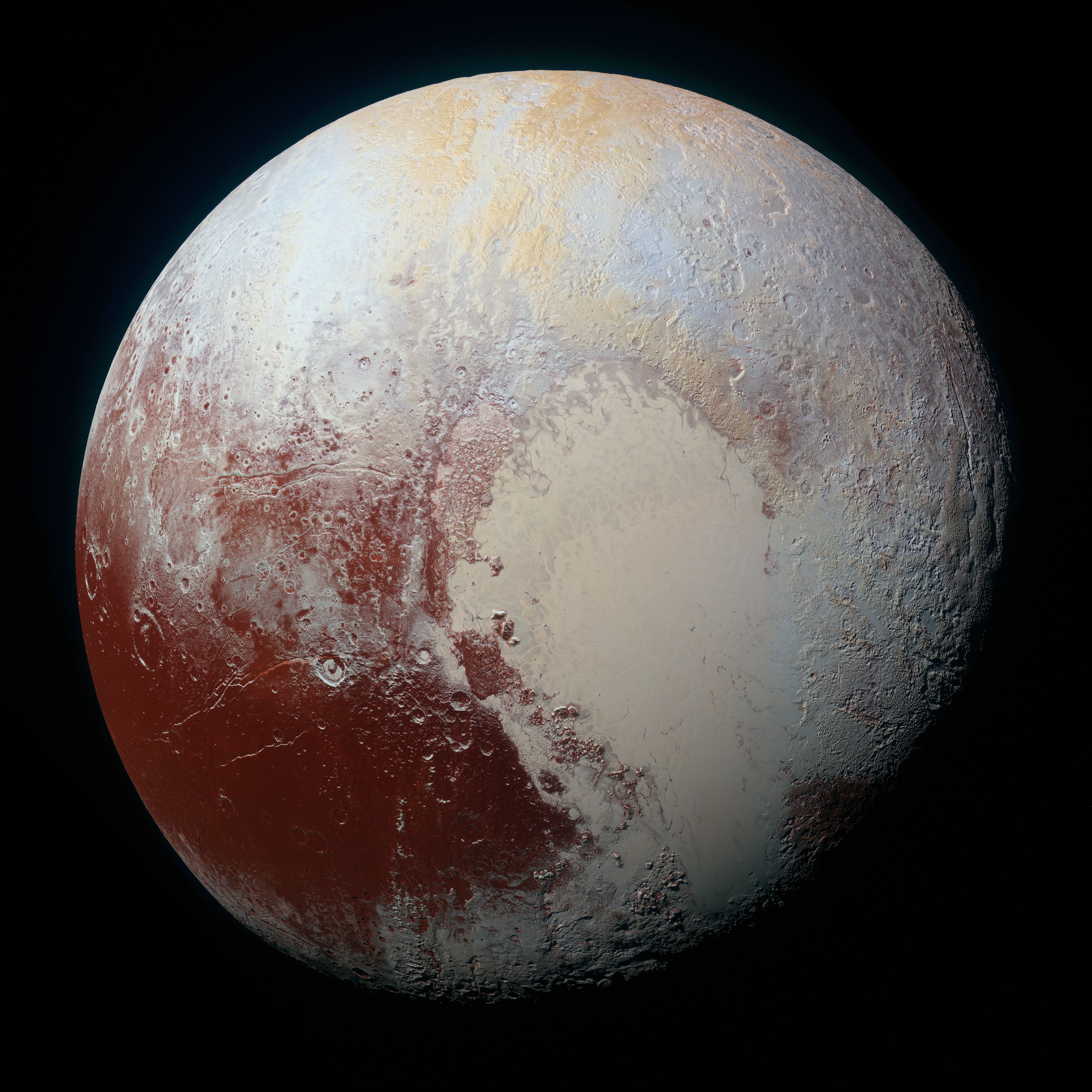I’m going to come right out and ask the burning question: Is Pluto a Planet?

No. At least under the current definition. So the question becomes “Should Pluto be a planet?”
That answer is a bit more complicated. Let’s look at the history.
Discovered by Clyde Tombaugh in 1930, Pluto was initially considered the ninth planet of our Solar System. It was part of an intense search that follows back all the way to the discovery of Uranus and the orbital calculations that led to the discovery of Neptune. Even after Neptune’s discovery, gravitational perturbations pointed to a ninth planet, and when Pluto was found, it still wasn’t enough, at least mathematically. So the search continued for the next planet, dubbed ‘Planet X.’
The next planet still hasn’t been found, but in the meantime, plenty of smaller rocks and icy bodies have been discovered, all part of the Kuiper Belt beyond Neptune. Pluto is a part of this belt, and the discovery of new Kuiper Belt Objects (KBOs) in the late 1980s and early 1990s had astronomers questioning it’s planet status. But the biggest blow came in 2005, with the discovery of the object known as Eris, nearly 30% more massive than Pluto. Now we have a true problem: If Pluto is a planet, surely Eris is too? And what of other distant KBOs like Haumea and Makemake? This prompted the International Astronomical Union (IAU) to produce a formal definition of a planet, still in place today:
To be considered a planet, an object must:
- Orbit the Sun
- Be massive enough that it’s own gravity rounds it into a sphere.
- Clear the neighbourhood around it’s orbit.
The first two are pretty straightforward, and apply to Pluto, but the third one is interesting, and is based upon the behaviour of gas giants such as Jupiter.
Jupiter is a massive planet with a huge amount of orbital angular momentum. When asteroids or other small rocks approach, they interact gravitationally with Jupiter, significantly changing their small momentum and sending them flying away from the giant planet. The end result of this is that the space around Jupiter is clear of objects other than it’s own moons.
Pluto, on the other hand, is not large enough to clear out the space around it with angular momentum. It is part of the Kuiper Belt and is surrounded by many smaller objects. The IAU used this fact to demote Pluto to a dwarf planet under the new rules, while also classifying KBOs Eris, Haumea, and Makemake as dwarf planets. The largest asteroid belt object, Ceres, was upgraded to a dwarf planet to round out the group of five. Ceres is especially noteworthy as it was originally considered a planet when discovered in 1801, and was subsequently called an asteroid as the asteroid belt was slowly discovered between Mars and Jupiter.
Currently, the official definition stands and Pluto is a dwarf planet.
So this is where we are today. What is the debate?
A major point of contention for those that consider Pluto a planet is the ‘clearing its neighbourhood’ part of the planet definition. It’s because most if not all ‘planets’ in the Solar System have other objects sharing their orbits. Even Jupiter’s orbit has a huge population of asteroids called ‘Trojans’ that fit in the gravitationally stable Lagrange points 60 degrees ahead of and behind Jupiter in it’s orbit. Earth has several small rocks that share its orbit, should Earth be a dwarf planet? The definition runs into trouble when considering specific cases and looking closely at the true conditions around solar system bodies.
In a Washington Post article from just a few days ago, Planetary Scientists Alan Stern and David Grinspoon published an article claiming Pluto was still a planet, by virtue of a planet being any object that exhibits certain characteristics, such as having mountains, atmosphere, active geological processes, and diverse surface features. They prefer a geophysical planet definition proposed at the most recent Lunar and Planetary Science conference in Houston, summarized planets as “round objects in space that are smaller than stars.”
As astronomers continue to discover new exoplanets and gain a deeper understanding of our own solar system, it seems the definition is likely to change to account for the most up to date knowledge. So when do we reach the tipping point?
My own opinion
I could give emotional reasons such as “I grew up with Pluto as a planet” or “I don’t like the solar system having more than 10 planets” or even “I don’t like calling Ceres a planet, it should be an asteroid.” Instead, I’ll say that the definition we currently have fails at the third criteria. A good scientific and all-encompassing definition in my view has planets doing only two things: Orbiting a star, and being roughly spherical due to gravity.
I don’t like satellites of objects like Jupiter being considered planets, even though they are more active than planets like Mercury and may harbour life (see Europa). As much as I like the geophysical definition given above, it’s too much of a deviation to redefine current moons as planets.
Whatever side of the debate you’re on, most agree that the definition is currently incomplete. And since the flyby of New Horizons in 2015, we can all agree that planet or not, Pluto is a fascinating place.
